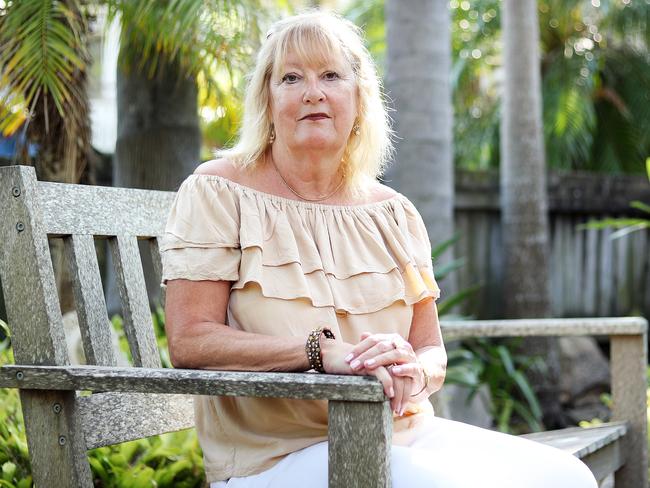Roundup faces class action over claims weedkiller caused cancer
It is a popular backyard weedkiller, but Sydney woman Michelle Porter and almost 60 others claim the product caused them to develop cancer — with the group launching an Australian-first class action against the local manufacturer.
- Population of NSW set to reach 10 million by 2036
- Eddie Obeid on his three years in jail: ‘I survived’
As a houseproud mum of four, Sydney woman Michelle Porter would spend most her weekends pottering about in her large northern beaches garden.
While her husband mowed the lawns, the Avalon doctor’s receptionist kept the extensive paved areas around the pool, under the pergola, around the side of house and in the front garden free of weeds.
Ms Porter used the popular herbicide Roundup — which she found in the local supermarket “some time in the ‘80s” — to help her weeding.

She was using Roundup up until July 2008, when one day she noticed she had difficulty speaking.
MORE FROM LINDA SILMALIS:
Young firey with broken leg waits four hours for help
Getting the Barefoot Investor into classrooms
Thinking she had had a stroke, Ms Porter and her husband drove to Mona Vale Hospital for scans before she was rushed to Royal North Shore Hospital in an ambulance.
“I was diagnosed with a cerebral frontal left lobe non-Hodgkins lymphoma and began immediate treatment,” she told The Sunday Telegraph.
“I remember the doctors telling me that it was rare that I had it at my age. I was 54 at the time.
“They thought I must have had an auto-immune disease of some sort such as HIV/AIDS.”

Only Ms Porter’s sister, an experience nurse, suggested the cancer may be linked to weedkiller.
“I remember her asking me what had I been using and I did use weedkiller in the garden,” she said.
The aggressive treatment include six months of chemotherapy and later, a stem cell transplant “that made me really, really sick.”
Regular medical check-ups continued for another seven years, in which time Ms Porter’s marriage broke up — “on New Year’s 2012” — she lost her home and her ability to work.
Now in remission, the effects of the tumour and treatment remain.
“They said I have been cured, but I have a limp on my right leg and have to be really careful negotiating stairs,” she said.
“I suffer fatigue, and am unable to work for more than 10 hours a week.
“My memory is also not as good as it used to be and my handwriting is affected, but my speech came back.”
It was only last year when Ms Porter made the connection between Roundup and her cancer after hearing about the possible link in media reports.

She now has no doubts her rare cancer was the result of her liberal and regular use of the product.
“I never used gloves or breathing apparatus,” she said.
“I just sprayed it everywhere. It had a chemical smell.”
Ms Porter, now a grandmother, has joined almost 60 other “mum and dad” gardeners, council workers, hobby farmers and agriculture workers in an Australian class action being launched by LHD Lawyers against Monsanto Australia, the local manufacturer of Roundup.
The class action launched last month in the Federal Court last month is the first in Australia — a second action was initiated in Victoria last week.
The move follows a successful court case in the US where a Californian man who blamed Roundup for his cancer was awarded $25 million. That judgment is subject to an appeal.
LHD Lawyers managing director Matthew Berenger said the victims in the Australian class action came from across the nation.
“We are suing Monsanto Australia for breaching its statutory obligations to not supply defective or unsafe goods,” he said.
“They ought to have been aware of the scientific literature that evidenced a link between Roundup and non-Hodgkins lymphoma. lymphoma.
“They were negligent in failing to cease distribution in light of that evidence and failed to warn users of the risk, and failed to provide adequate safety directions to protect users against those risks.”
The ingredient in Roundup under suspicion is glyphosate, which kills weeds by inhibiting an enzyme that is essential for a plant to grow.
Glyphosate is ranked as a “group 2a” carcinogen – or a substance deemed as “probably” causing cancer in people – by the World Health Organisation (WHO) International Agency for Research on Cancer.
Monsanto argues Roundup – which remains on store shelves across Australia – is not the cause of cancer given the enzyme glyphosate inhibits is not present in humans.


